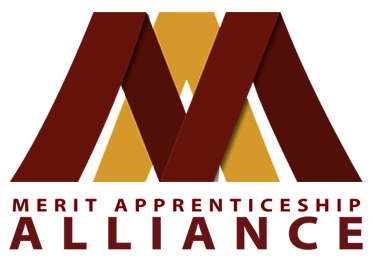Course Overviews
2023-2024
CORE, 6th Edition (rev. 2021)
Course Length: 85 hours
Students learn the basic fundamentals of construction including basic safety, construction math, drawings, tools, basic rigging, communication, materials handling, and more. This course provides the basic knowledge for someone beginning a career in construction.
Students learn the basic fundamentals of construction including basic safety, construction math, drawings, tools, basic rigging, communication, materials handling, and more. This course provides the basic knowledge for someone beginning a career in construction.
Concrete Construction, Level 1, 1st Edition (pub. 2020)
Course Length: 190.5 hours
Filled with technical hints and tips from industry experts and review questions, this two-level curriculum covers a range of specific content such as the characteristics of concrete, using concrete as a building material and the process of curing concrete.
Filled with technical hints and tips from industry experts and review questions, this two-level curriculum covers a range of specific content such as the characteristics of concrete, using concrete as a building material and the process of curing concrete.
Construction Craft Laborer II, 3rd Edition (rev. 2015)
Course Length: 147.5 hours
Laborers will continue their journey learning everything from reinforcing concrete, formwork, construction equipment, oxyfuel cutting, Green Environment, elevated masonry and forklift operation.
Laborers will continue their journey learning everything from reinforcing concrete, formwork, construction equipment, oxyfuel cutting, Green Environment, elevated masonry and forklift operation.
Millwright, Level 2, 4th Edition (rev. 2021)
Course Length: 175 hours
The Millwright trade has expanded to include work in metal and machinery of ever-increasing technology and precision. In this course, Millwrights learn installation, alignment, & troubleshooting machinery & blueprints.
The Millwright trade has expanded to include work in metal and machinery of ever-increasing technology and precision. In this course, Millwrights learn installation, alignment, & troubleshooting machinery & blueprints.
Pipefitter IV, 4th Edition (rev. 2021)
Course Length: 175 hours
Pipefitters install and repair both high- and low-pressure pipe systems used in manufacturing, in the generation of electricity, and in the heating and cooling of buildings.
Pipefitters install and repair both high- and low-pressure pipe systems used in manufacturing, in the generation of electricity, and in the heating and cooling of buildings.
Heavy Equipment Operations I, 3rd Edition (rev. 2020)
Course Length: 100 hours
Operators learn how to operate various types of heavy equipment, including rough terrain forklifts, on-road dump trucks, skid steers, loaders, and scrapers. Students will also learn excavation math, soils, interpreting civil drawings, 167.5 hours of instruction.
Operators learn how to operate various types of heavy equipment, including rough terrain forklifts, on-road dump trucks, skid steers, loaders, and scrapers. Students will also learn excavation math, soils, interpreting civil drawings, 167.5 hours of instruction.
Ironworking, Level 1, 2nd Edition (rev. 2011)
Course Length: 175 hours
This curriculum provides a basic foundation in ironworking safety, tools, welding, cranes, rigging, forklifts, and survey equipment are included, as well as trade drawings, steel joists, and structural steel. It also includes updated technology and practices, helping trainees be safer and more effective on the job site. The trainee will also learn how to apply practical applications of mathematical principles on the job site.
This curriculum provides a basic foundation in ironworking safety, tools, welding, cranes, rigging, forklifts, and survey equipment are included, as well as trade drawings, steel joists, and structural steel. It also includes updated technology and practices, helping trainees be safer and more effective on the job site. The trainee will also learn how to apply practical applications of mathematical principles on the job site.




